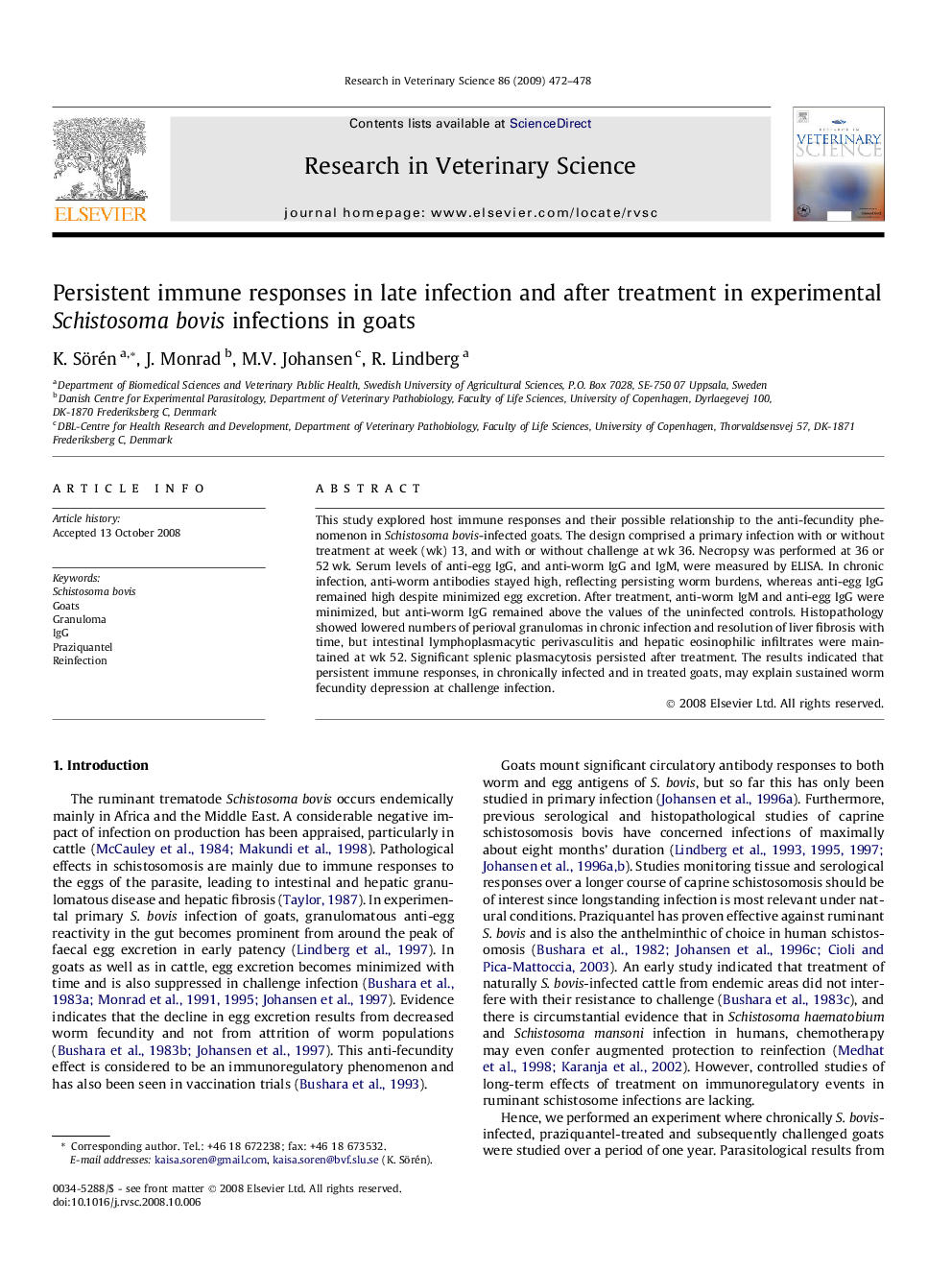| Article ID | Journal | Published Year | Pages | File Type |
|---|---|---|---|---|
| 2456126 | Research in Veterinary Science | 2009 | 7 Pages |
Abstract
This study explored host immune responses and their possible relationship to the anti-fecundity phenomenon in Schistosoma bovis-infected goats. The design comprised a primary infection with or without treatment at week (wk) 13, and with or without challenge at wk 36. Necropsy was performed at 36 or 52Â wk. Serum levels of anti-egg IgG, and anti-worm IgG and IgM, were measured by ELISA. In chronic infection, anti-worm antibodies stayed high, reflecting persisting worm burdens, whereas anti-egg IgG remained high despite minimized egg excretion. After treatment, anti-worm IgM and anti-egg IgG were minimized, but anti-worm IgG remained above the values of the uninfected controls. Histopathology showed lowered numbers of perioval granulomas in chronic infection and resolution of liver fibrosis with time, but intestinal lymphoplasmacytic perivasculitis and hepatic eosinophilic infiltrates were maintained at wk 52. Significant splenic plasmacytosis persisted after treatment. The results indicated that persistent immune responses, in chronically infected and in treated goats, may explain sustained worm fecundity depression at challenge infection.
Related Topics
Life Sciences
Agricultural and Biological Sciences
Animal Science and Zoology
Authors
K. Sörén, J. Monrad, M.V. Johansen, R. Lindberg,
